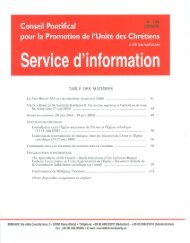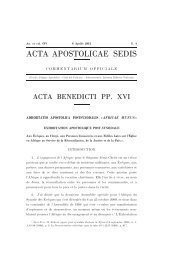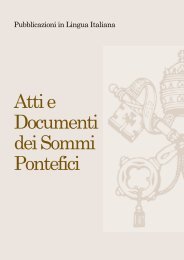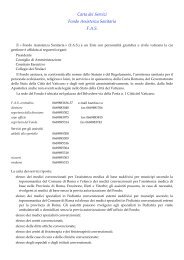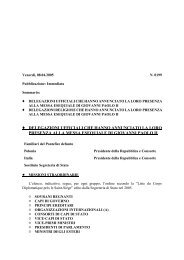ACTA APOSTOLICAE SEDIS - La Santa Sede
ACTA APOSTOLICAE SEDIS - La Santa Sede
ACTA APOSTOLICAE SEDIS - La Santa Sede
Erfolgreiche ePaper selbst erstellen
Machen Sie aus Ihren PDF Publikationen ein blätterbares Flipbook mit unserer einzigartigen Google optimierten e-Paper Software.
694<br />
Acta Apostolicae Sedis – Commentarium Officiale<br />
to the proposal. The complex issues relating to mandatory reporting were<br />
acknowledged by Mr Currie in a detailed presentation in Seanad Éireann on<br />
14 March 1996.<br />
On 6 November 1996, Mr Currie stated in Dáil Éireann that over two<br />
hundred submissions from groups and individuals had been received in response<br />
to Putting Children First, that the submissions reflected a wide diversity<br />
of views on mandatory reporting and that the majority expressed reservations<br />
or opposition to mandatory reporting. Following these consultations,<br />
which, among other things, drew attention to various complex issues relating<br />
to the advisability and feasibility of mandatory reporting (including use of<br />
resources, professional judgment, the types of abuse that should be subject to<br />
mandatory reporting and who should become mandated reporters), the Irish<br />
Government decided not to introduce it in a formal way but instead to issue<br />
guidelines for the reporting of suspected child abuse by professionals and<br />
non-professionals, postponing any further consideration of mandatory reporting<br />
for three years. Given that the Irish Government of the day decided<br />
not to legislate on the matter, it is difficult to see how Archbishop Storero’s<br />
letter to the Irish Bishops, which was issued subsequently, could possibly be<br />
construed as having somehow subverted Irish law or undermined the Irish<br />
State in its efforts to deal with the problem in question.<br />
The Holy See notes that in a statement in Dáil Éireann on 25 March 1997,<br />
the then Minister for Health, Mr Michael Noonan, explained why the Government<br />
of the day had decided not to introduce mandatory reporting. He<br />
recognized that all who participated in the relevant consultative process,<br />
including those who expressed reservations or were opposed to mandatory<br />
reporting, had the “best interests of children” as their “paramount concern”.<br />
Explaining the Government’s decision he stated: “However, it was suggested in<br />
a number of submissions that sight should not be lost of a person’s right to his or<br />
her good name in dealing with the reporting of child abuse and the Minister of<br />
State was conscious of the need to maintain an appropriate balance in developing<br />
the initiatives outlined.” Thus, the reservations expressed by the Congregation<br />
for the Clergy about mandatory reporting were in line with those expressed<br />
at the time by various professional groups and individuals in Ireland, including<br />
members of the Irish Government.<br />
It should also be noted that in reply to a question posed by Deputy Liz<br />
O’Donnell, Mr Noonan added: “The Minister of State has proceeded to strengthen<br />
the framework and he has also talked about establishing a body, such as an




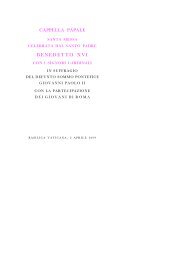
![AAS 01 [1909] - La Santa Sede](https://img.yumpu.com/51456523/1/180x260/aas-01-1909-la-santa-sede.jpg?quality=85)
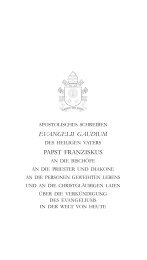
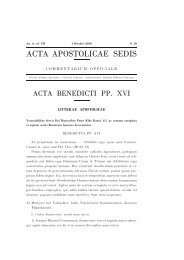
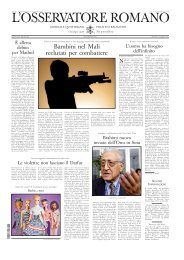
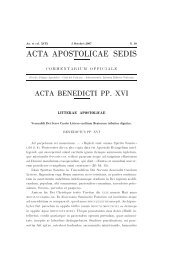
![AAS 20 [1928] - La Santa Sede](https://img.yumpu.com/19772818/1/180x260/aas-20-1928-la-santa-sede.jpg?quality=85)
